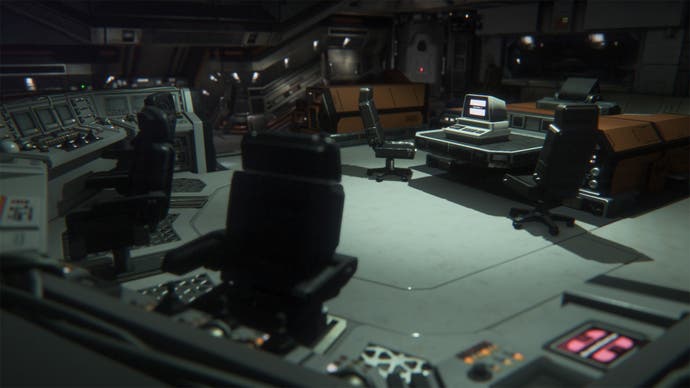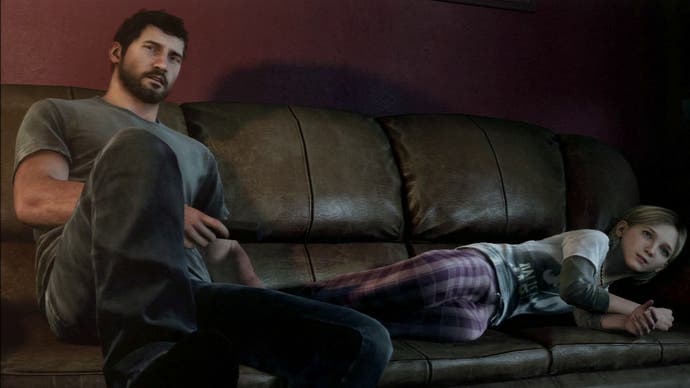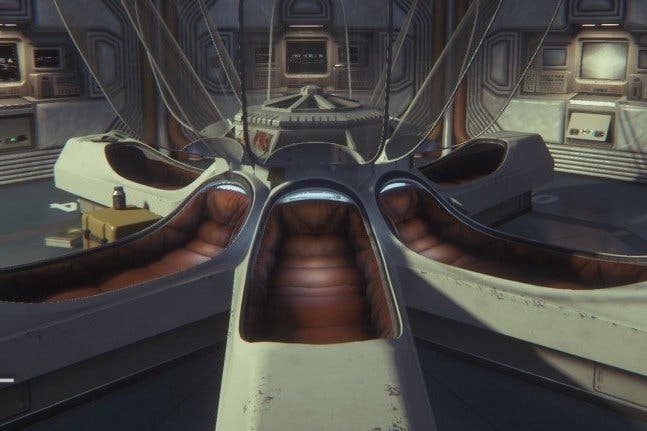Walking is the new shooting
How big budget games have slyly shifted their focus towards narrative.
Narrative used to be a dirty word in video games. For a long time the perception of the medium was that story, characters, theme and plot mattered about as much as the script to a porno. Naturally, a slew of small studios have fought this notion time and time again in such successful breakout hits as Gone Home, The Stanley Parable, Dear Esther, Thirty Flights of Loving, and most recently The Vanishing of Ethan Carter (made by the director of Bulletstorm no less!).
But that's old news! Of course independent developers are pushing the limits of what the medium is capable of as they're not beholden to publishers, and these more experimental curios have had a lot of success relative to their minuscule studio sizes. What's really interesting is that big budget blockbusters are adapting to this new way of thinking and in many cases they're doing it shockingly well.
Right now the biggest and boldest example I've seen of this (and the inspiration for writing this, if I'm being honest) is the bewilderingly slow opening of Alien: Isolation. It takes two hours before the titular creature even shows up. That's a long time! So what happens in those first two hours?
A lot of walking, to be frank. There's a whole lot of looking at The Creative Assembly's distinct recreation of late 70s retro sci-fi, while you occasionally peruse text logs, watch brief cutscenes, and flip levers. It's not terribly exciting stuff, but it is engrossing and does a fine job at realising this dismal, blue collar world and its thick atmosphere of creeping dread. The first act of its source material was an incredibly slow burn too, so it only makes sense to keep that deliberate pacing in this interactive retread.

Alien: Isolation isn't the only blockbuster to sideline its traditional game mechanics for lengths on end. Another example of this concept being executed brilliantly is the opening hour of The Last of Us. It takes 50 minutes or so until you have your first combat encounter, but is that opening hour boring? Not at all! It sets up the characters, plot and world. Many would argue that it's the best part of the game as you familiarise yourself with player character Joel and the dismal society he inhabits. It's a splendid intro that's full of subtle, intriguing details that stick with you as you proceed into the stealthy action adventure that it inevitably becomes.
BioShock Infinite follows a similar pattern where its opening hour is largely devoid of combat as you're slowly introduced to the wonderful sight and sounds of the nationalistic dixieland society and its not-so-wonderful overt racism. Exploring its public market, partaking in parlour games and taking mental notes of the red herrings in its twisty sci-fi tale is enough to ensure that there's always something worth pondering whether its a peculiar brand on your hand or a barbershop quartet crooning a period cover of a Beach Boys ballad.
I'd also toss out a nod to the Metro series for its decision to disarm the player for several sections where you do little but explore its subterranean municipalities. Watching folks work, play, argue over resources, interact with their families, and bait you with prostitutes gives the impression of a living, breathing world - even if you can't interact with it that much.
These more experiential sections of what are otherwise primarily action or stealth games aren't an entirely new concept, but they're certainly increasing in popularity. It's been 16 years since Half-Life opened with a day in the life of a scientist arriving at the office, and few big budget games have attempted this since. Or worse, they've tried to copy it with no understanding of how and why it worked.

See, slower doesn't automatically mean better and more story doesn't automatically mean smarter. When Doom 3 spent more than five minutes getting to the demon slaughter and peppered its adventure with banal soldier logs, it didn't really enhance the experience in any significant way. Doom was never about plot or characters, so why even bother pretending it is? To be blunt: text logs have no place in Doom. Chainsaws, however, do.
Alien: Isolation gets it, though, even if its tale of corporate greed isn't quite interesting enough to justify how much it focuses on it. Still, I appreciate the hell out of developer The Creative Assembly for having the audacity to try it. It's probably the one of the most experimental big budget games I've ever played (alongside Asura's Wrath, of course, which is boldly hypothesised that people would pay £40 for an eight-hour game that's 75 per cent non-interactive).
So let's not discount the multimillion dollar blockbuster so fast. It's not just small studios that are making quote-unquote-art, while large publishers are just pumping out the video game equivalent of Michael Bay movies (even if the $500 million Destiny's narrative is bollocks). For a long time I felt like big publishers were playing things increasingly safe as the indie movement only grew more experimental, but I'm not so cynical anymore. It's not just the small studios that are pushing the medium's boundaries anymore, but the entire medium itself that's growing increasingly diverse. If you ask me, that's cause for celebration.

